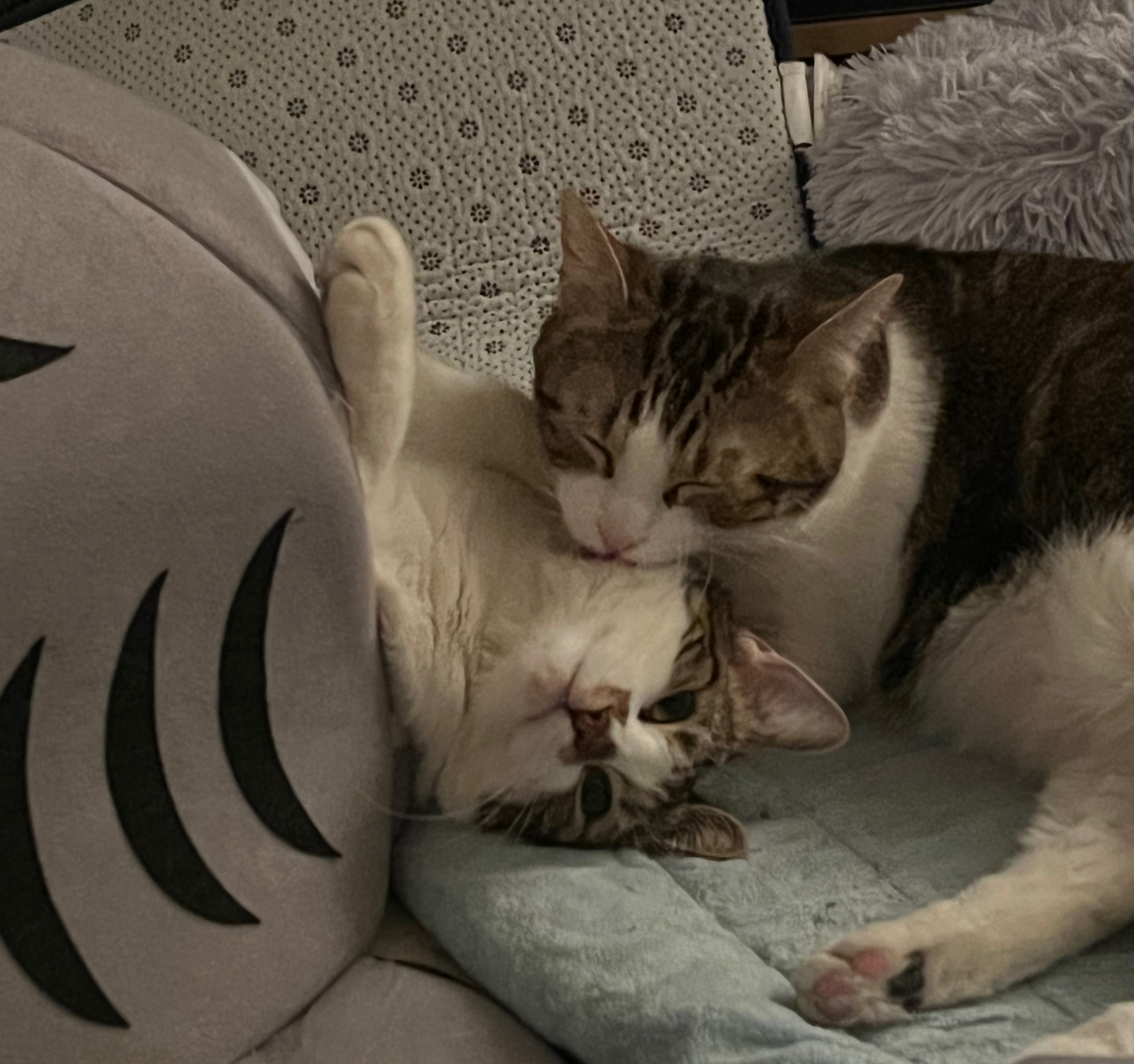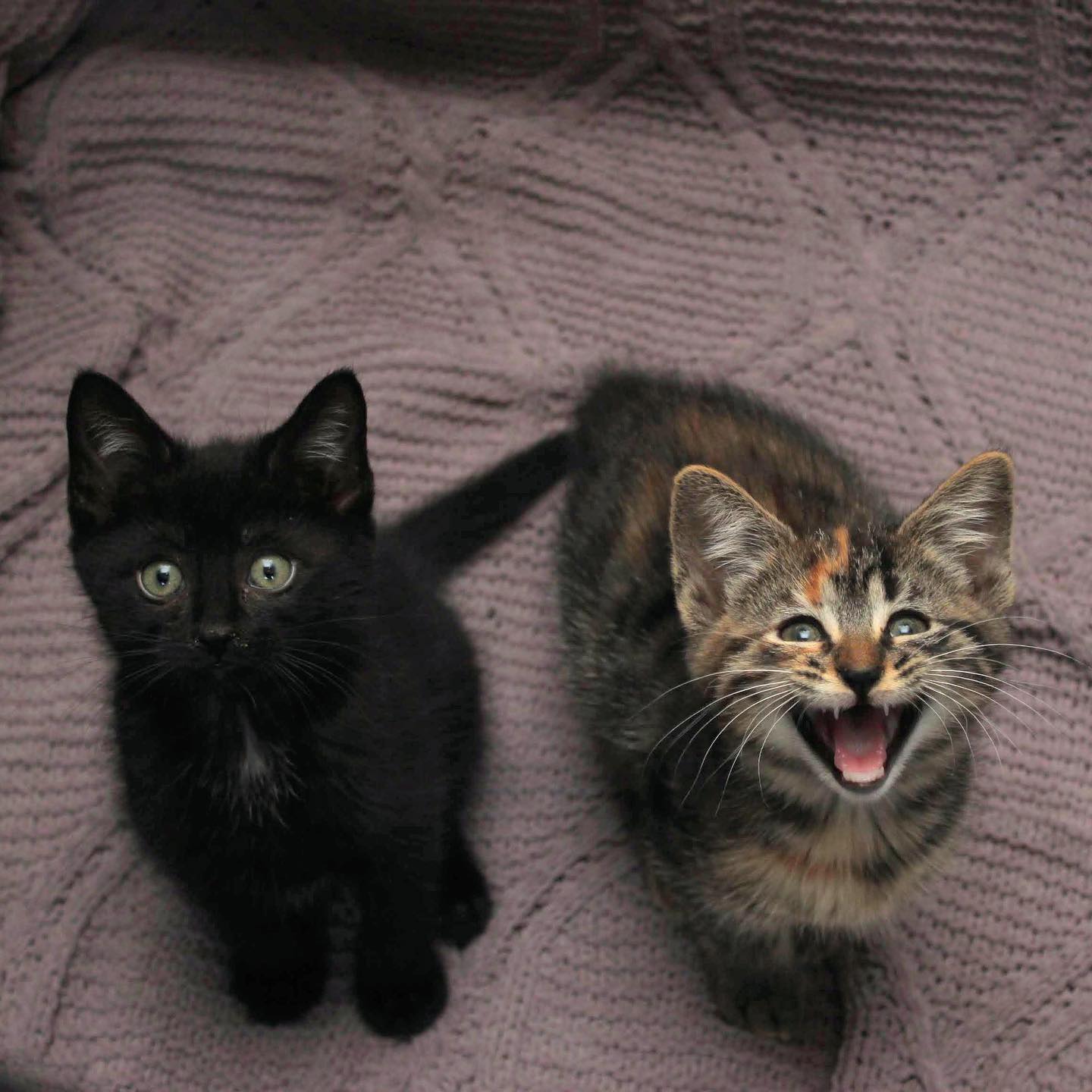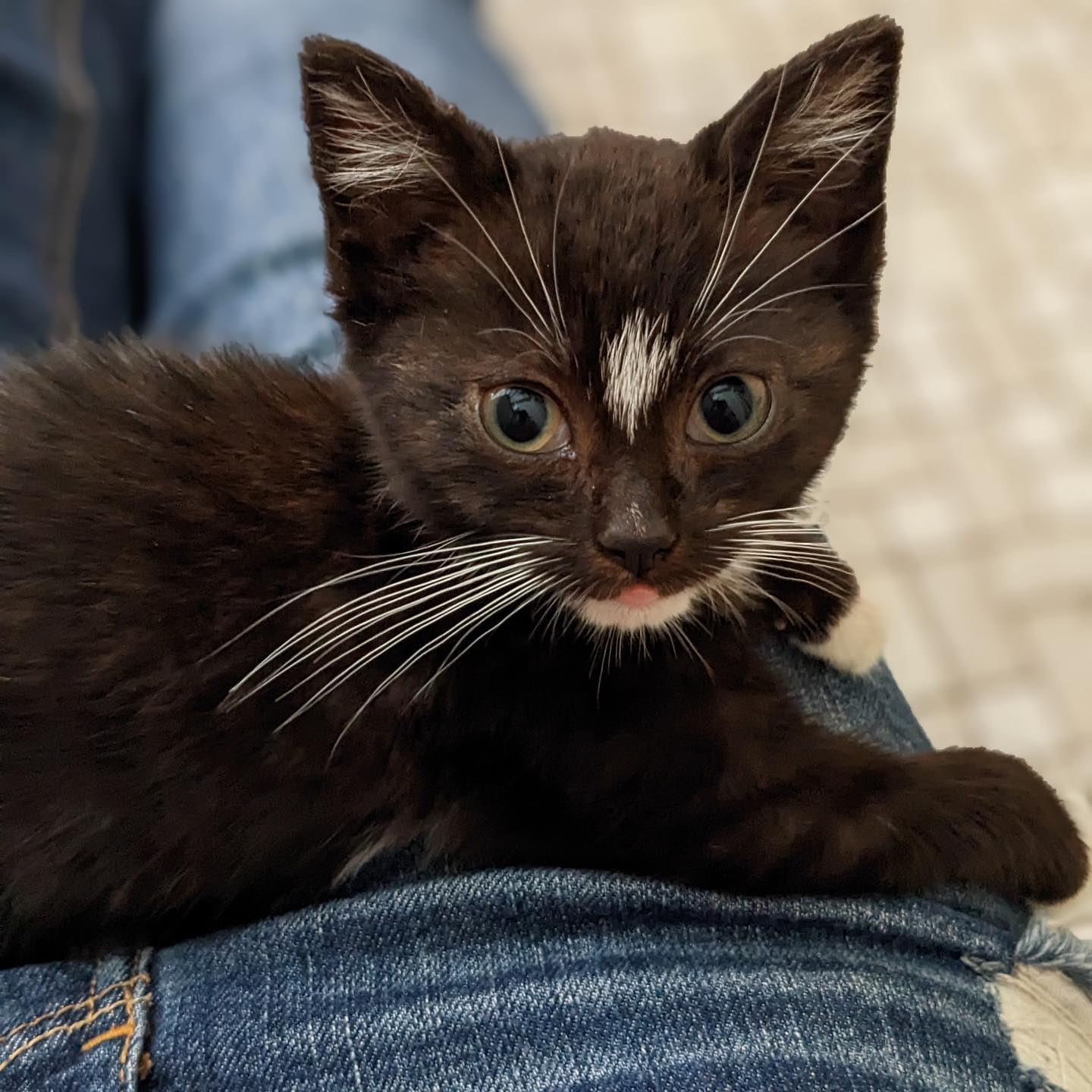Since 2001
Saving Animals & Finding Homes
Our History
Since its inception in 2001, the For Animals TNR program has spayed and neutered thousands of cats across hundreds of colonies, and educated dozens of caretakers about proper care for feral cats. During this time, the For Animals adoption program has also placed hundreds of homeless cats and kittens in loving, permanent homes while raising awareness about companion animal homelessness and the importance of spay/neuter.

What is a bonded pair?
A bonded pair contains two cats that have a special relationship and seek a home that will adopt them together.
Statistically, bonded pairs spend longer times waiting to get adopted, because people sometimes feel they can’t take on two cats.
Bonded Pairs are Happier
When you adopt a bonded pair, these cats will always have a companion; someone to eat, play, rough-and-tumble or nap with. So you don’t have to feel guilty about leaving the house for work or other reasons. Your fur-babies have their own furriend & are ready for your snuggles on your return – and they don’t feel bored, sad or alone all day!
Why are bonded pairs great?
Bonded Pairs Learn from Each Other
Kittens are still learning how to grow up to be cats; They’re always trying new things and learning new socialization skills. With a bonded pair, these cats will always have a partner in crime to blaze new trails with & pick up better habits by learning from each other
You’ll be Giving Two Cats a Happy Home & Saving Four
By adopting two you’re saving four animals in fact: The 2 you’re taking home and the 2 spaces you’re opening up at the shelter for new rescues!


Why don’t you adopt out kittens solo?
Many shelters insist that kittens under 7 months old should be adopted in pairs & even an older kitten/adult cat is better off with another friendly cat. Because Single-Kitten Syndrome/ Single-Cat Syndrome is a proven reality.
If you adopt only one kitty she/he can develop aggressive behaviors (known as Tarzan Syndrome)become anxious, stressed, neurotic – caused by the anxiety, boredom & loneliness of being the sole kitty.
Although some cats do enjoy being the only feline in the house, kittens develop better socialization skills, sleeping patterns, litter habits & overall experience a smoother transition into their new home life if they have other cats to learn from and grow with.
More Resources
Health & Medical Links
- FIV FAQs
- Debunking FIV rumors
- Study shows FIV+ cats can live safely with FIV- cats
- FeLV FAQs
- FIP drugs continue to show promise
- FIP Warriors FB group
- Why cats should eat wet food
- Don’t feed these people foods
- List of plants toxic to cats
- These essential oils are toxic to cats
- ASPCA Poison Control Helpline for companion animals
- Arthritis in dogs
